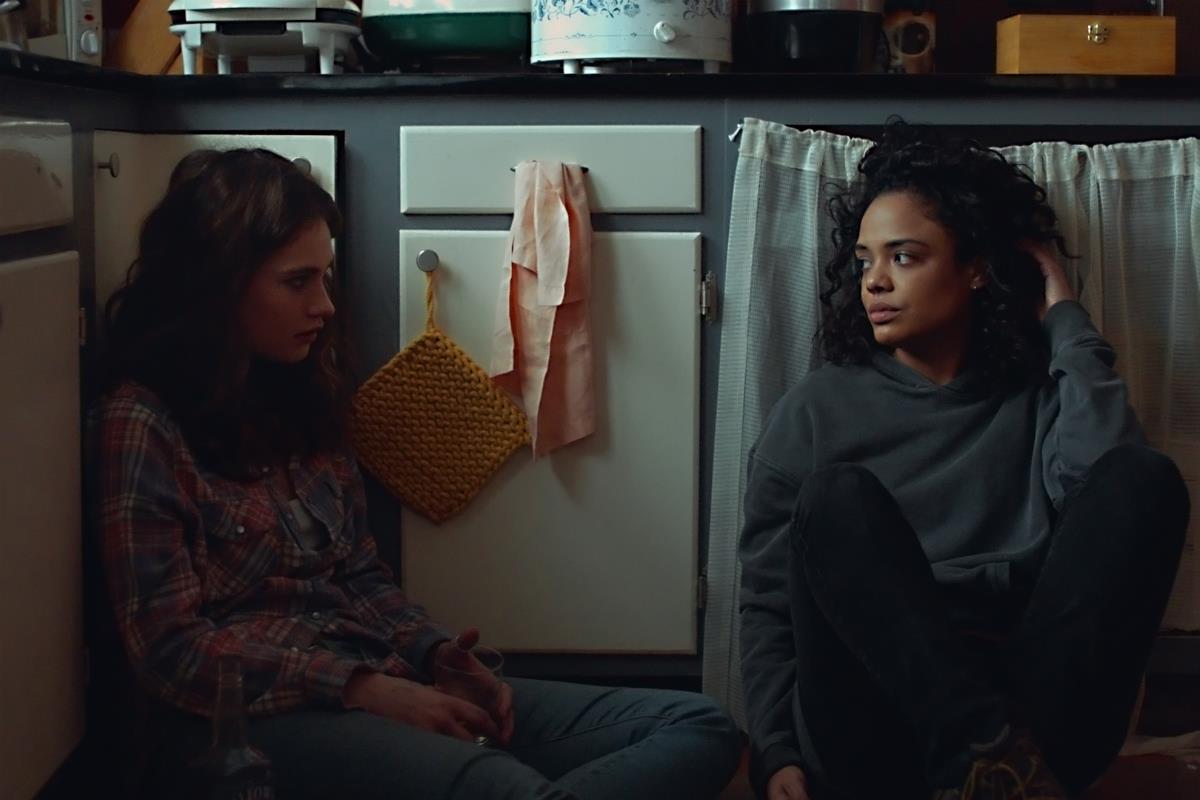
LAFF Review: ‘Little Woods’ exposes the life of women living in rural poverty
Written by: Fiona Underhill, CC2K Staff Writer
The debut feature from writer-director Nia DaCosta, Little Woods won the Tribeca Film Festival’s 2018 Nora Ephron Award, a highly prestigious prize bestowed to a first-time, female filmmaker. DaCosta shines a light on women living in poverty in rural America and the impact this has on their healthcare.
Ollie (Tessa Thompson) is detained at the border when she’s caught smuggling drugs from Canada to help her mother cope with the end of her life. Her mother passes away and Ollie (now on probation) is determined to move on from a life of crime and get a job that allows her to move away. However, money owed on her mother’s mortgage, and her sister Deb’s (Lily James), pregnancy prevents her from leaving. Deb lives in a trailer with her son Johnny and realizes she cannot afford another child, let alone the cost of an abortion. Ollie wants to secure the house for Deb before she moves away and is drawn back in to “one last job”.

In an interview with Under the Radar, DaCosta says: “That came from me realizing my privilege of being from a city and relatively well-educated, not being well-off but having access to so many things in spite of that. I thought about how different it would be to be living in a rural part of America, and to be a woman living there in poverty.” It is the performances which really make Little Woods work, particularly Tessa Thompson’s. Thompson is enjoying an extraordinary year with roles in Sorry to Bother You, Annihilation, Furlough, Westworld and Dirty Computer. She is a versatile actor, capable of playing steely determination and vulnerability so well.
Lily James can’t quite match Thompson in terms of acting, and her accent wavers; however, she still delivers a decent portrayal in what is a very different role for her. Thompson and James are vanity-free in their takes on working-class women. James Badge Dale plays Deb’s on-again-off-again boyfriend who aids Ollie in her drug deals and is really strong in this part. Unfortunately, the dialogue occasionally slips into cliché and the characters say things that seem unbelievable for who they are. But, the performances make up for these lapses and it doesn’t happen frequently enough to ruin the whole experience.
The landscape is spectacular whilst being forbidding and inhospitable. It is surprising to learn Little Woods was filmed in Texas, which does a good job standing in for the freezing wastelands of North Dakota. It is clearly an industrial, male-dominated world where Ollie supplements her income by bringing laundry, food and drinks to the crew working on the oil fields. It is hard not to compare this to one of the best movies of this year, Chloe Zhao’s The Rider which is set in South Dakota and examines masculinity (in that case, young men in the rodeo). It makes a great companion piece to Little Woods since both deal with rural poverty, but one explores the impact on young men and the other on women. Both are modern-day Westerns re-examining the mythology of the American Dream. Ollie is a heroic savior trying to ‘put down her guns’ but is drawn back, in an attempt to rescue her family from a situation in which the dream has very much soured.

The extreme clutter in both the house where Ollie had cared for her mother and in Deb’s trailer adds depth to both characters and their situations. Ollie still sleeps on the floor of her mother’s room, which she had grown used to while caring for her, which adds light and shade to these people and makes it seem more like you are observing reality. Ollie is unsure what to wear to her job interview and the costume design combines with the production design to make the world feel lived-in. The soundtrack is used sparingly, but is evocative when it is deployed, often in scenes when Ollie is in her pick-up truck, traversing vast distances.
Little Woods adds to a collection of films tackling the contemporary realities of living in America in 2018 and doesn’t shy away from presenting harsh truths. It is gratifying that filmmakers are tackling urgent issues affecting millions of people and telling these stories in a subtle and nuanced way, drawing attention through character exploration. 2018 has been a really strong year in cinema for examining not only itself, but the state of the nation and where we are now.
